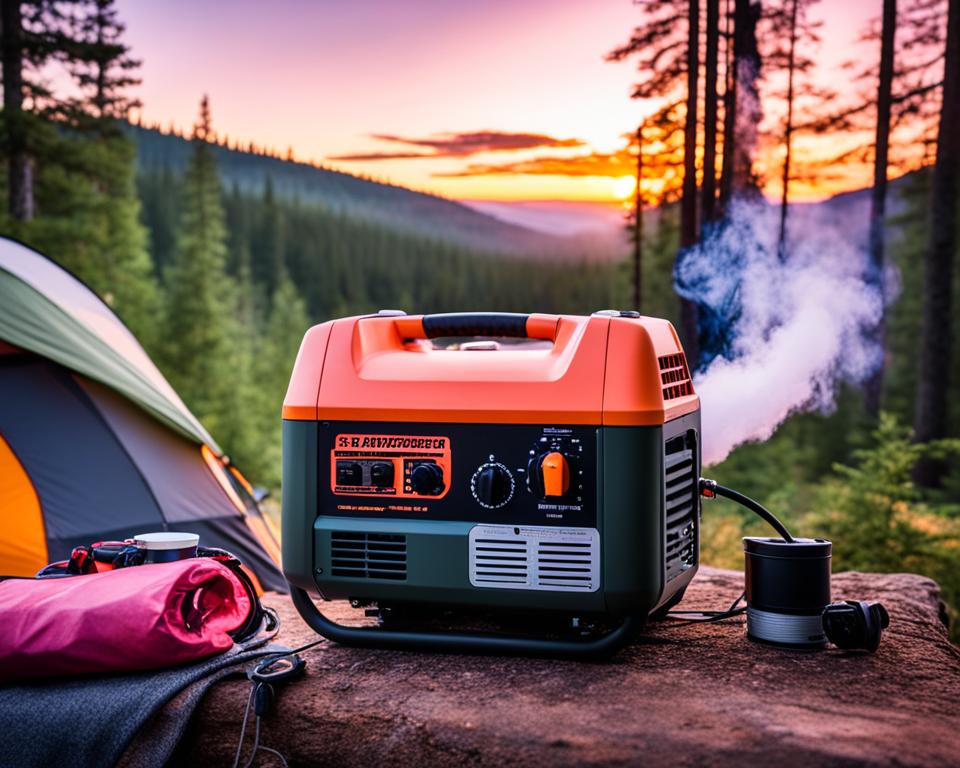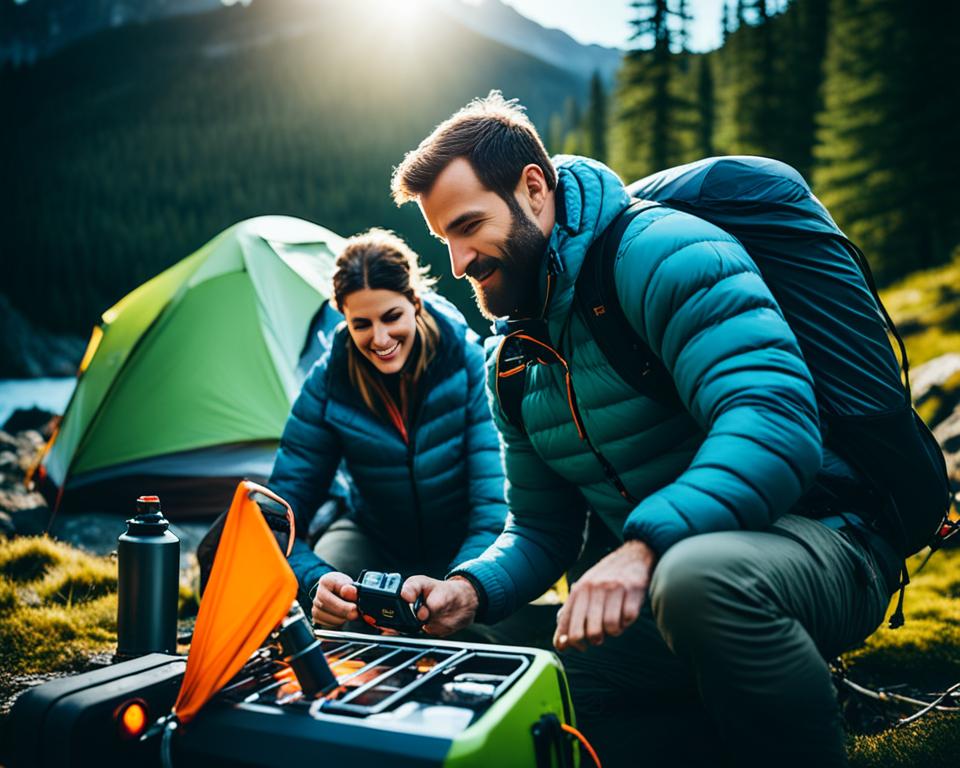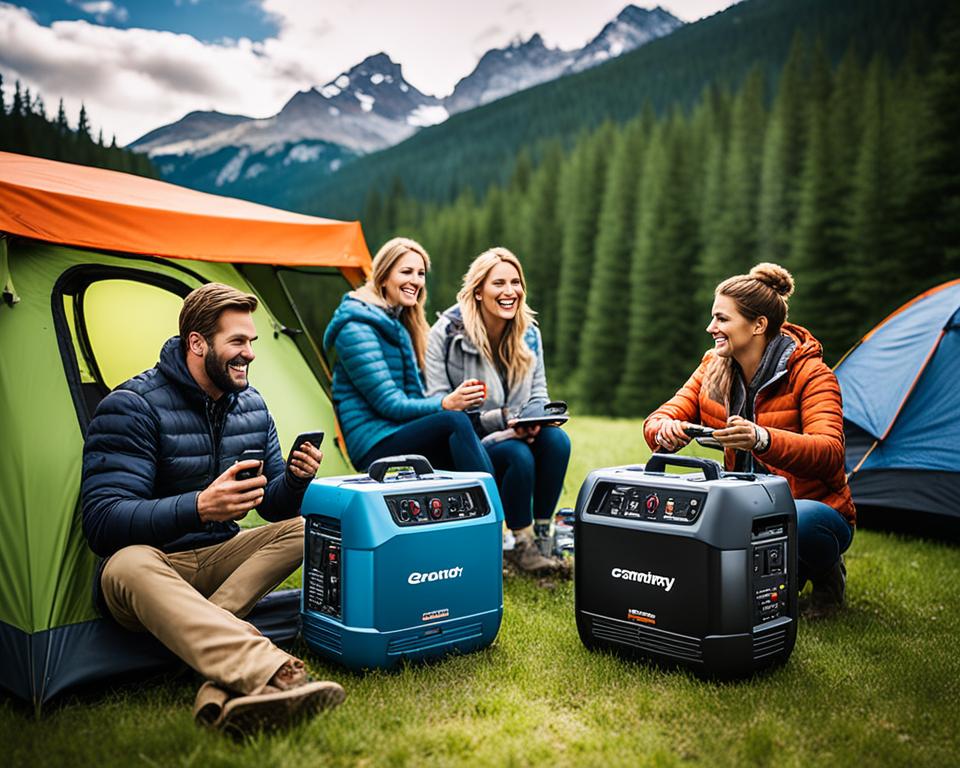As a homeowner, I’ve learned to count on portable generators. They are small but powerful, giving you backup power when you need it most. They’re perfect for when the power goes out, or when you’re at a job site without electricity.
Portable generators come in many sizes, from tiny ones for camping to big ones for your whole house. They can use gasoline, propane, or both, giving you options. They’re great for emergencies, job sites, or even powering your RV or tailgating setup.
This guide will cover the basics of portable generators. I’ll help you understand power needs and pick the right model for you. Whether you need a backup or just want to learn more, you’ll get the info to make a smart choice. Your portable generator will be ready for anything.
Understanding Portable Generator Basics
Portable generators are great for keeping your power on during emergencies. They’re perfect for when a big storm or disaster knocks out the electricity. These small units can run your important home devices and tools, or even power your outdoor fun.
Backup Power for Emergencies
When the power goes out, a portable generator can save the day. It can run things like your fridge, sump pump, and lights. This keeps your home safe and comfy, especially during hurricanes when power might be out for a long time.
Power Requirements and Generator Size
Choosing the right portable generator is important. You need to know how much power you need. Add up the wattage of all the devices you want to use at once to find the right size.
Big generators can power more things but are harder to move. It’s important to find a balance between power and size for your backup power.
| Generator Size (Watts) | Typical Appliances Powered |
|---|---|
| 3,000 – 5,000 Watts |
|
| 5,000 – 7,500 Watts |
|
| 7,500 – 10,000 Watts |
|
“A portable generator can be a lifesaver during power outages, keeping your essential home systems and devices running until the grid is restored.”

Portable Generators for Various Applications
Portable generators are not just for emergencies. They are great for camping, the job site, and RVs. These machines give you power wherever you need it.
Camping and Tailgating Generators
For those who love camping and tailgating, small, inverter-style portable generators are perfect. They are quiet and can power lights, electronics, and small appliances. So, your outdoor fun won’t stop.
Whether you’re camping or having a tailgate party, a good camping generator or tailgating generator is key. It makes sure you have the power to enjoy the outdoors.
Job Site Generators
Portable generators are vital on the job site. They power tools, equipment, and lights. Big portable generators handle the tough demands of construction and maintenance.
A reliable job site generator keeps your work going smoothly, even in hard-to-reach places.
RV Generators
RV owners need a portable RV generator. It powers your RV’s systems and fun stuff like air conditioning and entertainment. So, you can enjoy your trips more.
Choosing the right portable generator is key. It should fit your needs and have the right safety features. This way, you get reliable power and a great experience, whether you’re camping, working, or RVing.
| Application | Ideal Generator Type | Key Considerations |
|---|---|---|
| Camping/Tailgating | Inverter-style portable generator | Quiet operation, compact size, clean power for electronics |
| Job Site | Larger portable generator | Sufficient power for tools and equipment, durability, portability |
| RV | Portable RV generator | Ability to power RV’s electrical systems and amenities, quiet operation |

“A portable generator is a versatile tool that can power your adventures, job site, or RV, wherever you go.”
Safety Tips for Using Portable Generators
As a responsible generator owner, I know safety is key. I make sure my generator is outside in a place with good air flow. Never inside my home or garage. The exhaust can release deadly carbon monoxide in closed areas.
Electrical safety is also key. I use heavy-duty, outdoor power cords to avoid electric shock. I follow the maker’s instructions to ground the generator to keep my family safe.
When it comes to fuel safety, I’m careful. I don’t add fuel while it’s running or still hot because gasoline is very flammable. I also don’t keep my generator with a full tank to avoid fire risks. By following the maker’s advice and being careful, I use my portable generator safely.

